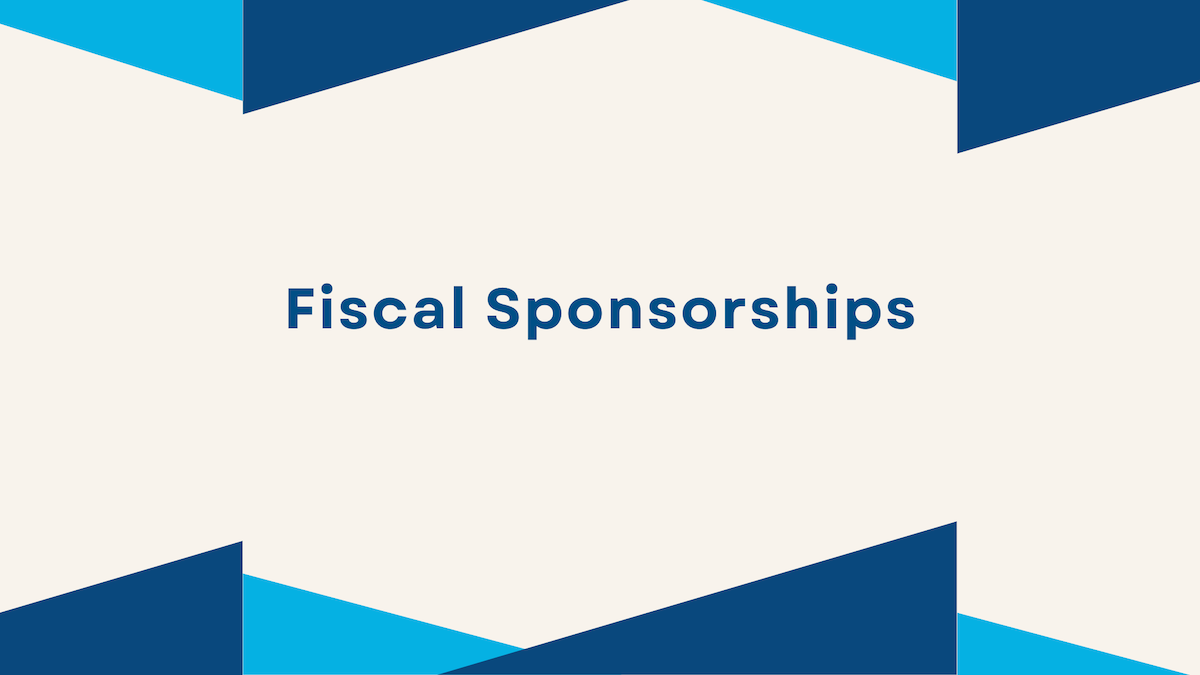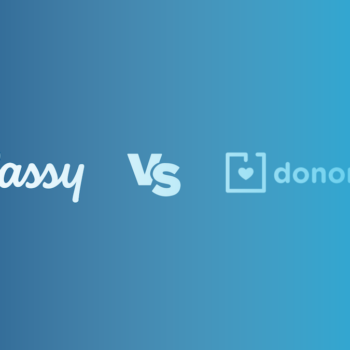A fiscal sponsorship is a unique arrangement where a nonprofit organization (the fiscal sponsor) offers its legal and tax-exempt status to a project or group that does not have its own 501(c)(3) nonprofit designation.
This setup allows the sponsored project to receive tax-deductible donations and grants, leveraging the sponsor’s tax-exempt status. In many cases, the sponsor provides administrative support, financial oversight, and legal backing, allowing the project to focus on its mission-driven goals without the burden of setting up a separate nonprofit entity.
Fiscal sponsorships are often used by startup organizations, grassroots initiatives, or short-term projects that need funding but may not have the resources to establish and maintain a nonprofit.
The fiscal sponsor typically charges a fee or percentage of funds raised to cover administrative costs, making it a mutually beneficial arrangement.
Nonprofit Resources
The Charity Charge resource hub is dedicated to providing tips, tools, and information to help your nonprofit create and grow a modern organization. Learn more
Key Components of a Fiscal Sponsorship
- Legal and Financial Oversight: The fiscal sponsor manages the financial aspects, ensuring compliance with IRS regulations.
- Tax-Exempt Status: Sponsored projects can solicit tax-deductible donations under the sponsor’s nonprofit status.
- Administrative Support: Many sponsors provide services like accounting, HR support, and compliance to streamline project management.
- Fee Structure: Fiscal sponsors charge an administrative fee, generally between 5-15% of the funds raised, to cover costs.
Types of Fiscal Sponsorships
Fiscal sponsorships are commonly divided into different models, with the most prevalent being:
- Comprehensive (Model A): The sponsor has full control over the project, including its finances and employees.
- Pre-Approved Grant Relationship (Model C): The project remains separate but receives funds as grants through the fiscal sponsor.
Each model varies in control, risk, and compliance requirements, allowing organizations to choose the best fit for their needs.
Benefits of Fiscal Sponsorship
- Cost-Effective Entry into Nonprofit Work: Avoids the costs and legal steps required to establish a nonprofit.
- Faster Access to Funding: Allows immediate fundraising under a nonprofit status.
- Enhanced Credibility: Association with a reputable nonprofit may improve trust and access to grants.
Examples of Fiscal Sponsors
Tides Center
- Description: Tides is one of the largest and most established fiscal sponsors in the U.S., known for supporting progressive and innovative social justice projects.
- Specialties: Tides provides a wide range of administrative support, compliance, and grant management services, making it ideal for projects that need comprehensive support.
- Notable Projects: Tides has worked with thousands of social ventures and nonprofits, including environmental, health, and educational initiatives.
- Fees: Their fee structure varies by project but generally ranges from 9-15% of funds raised.
- Website: Tides Center
New Venture Fund
- Description: Known for its experience with public interest projects, the New Venture Fund (NVF) is a fiscal sponsor focusing on environmental, public health, and social policy initiatives.
- Specialties: NVF provides support across a range of services, from grant compliance to HR, making it popular for large-scale and high-impact projects.
- Notable Projects: NVF has supported numerous national and international advocacy campaigns, public health initiatives, and policy-focused projects.
- Fees: They typically charge 10-12% of the project’s budget.
- Website: New Venture Fund
Fractured Atlas
- Description: Fractured Atlas is a top fiscal sponsor in the arts sector, supporting artists, performers, and creative projects nationwide.
- Specialties: In addition to tax-exempt status, Fractured Atlas offers online tools for fundraising, managing donations, and building connections within the arts community.
- Notable Projects: Fractured Atlas has worked with countless artists, theaters, filmmakers, and other creative professionals.
- Fees: Fractured Atlas charges an 8% administrative fee on funds raised.
- Website: Fractured Atlas
GlobalGiving
- Description: GlobalGiving focuses on supporting international development and grassroots projects around the world, making it an excellent fiscal sponsor for globally oriented initiatives.
- Specialties: GlobalGiving provides tax-deductible donation processing, grant compliance, and donor relations management, especially for international projects.
- Notable Projects: GlobalGiving has supported disaster relief initiatives, sustainable development programs, and community health projects worldwide.
- Fees: The platform charges a 5-12% fee, depending on the project’s fundraising approach.
- Website: GlobalGiving
Social Good Fund
- Description: Social Good Fund supports a wide range of causes, including social justice, education, arts, and environmental projects. It’s known for being accessible to smaller and emerging initiatives.
- Specialties: Social Good Fund provides general fiscal sponsorship services along with project development support and fundraising resources, making it a great fit for grassroots initiatives.
- Notable Projects: They have sponsored hundreds of projects, from social justice startups to educational programs and community service initiatives.
- Fees: They typically charge 7-10% of funds raised.
- Website: Social Good Fund
These fiscal sponsors each offer specialized services that can help project leaders focus on their missions while navigating the complex nonprofit landscape.
Is Fiscal Sponsorship Right for You?
For organizations or individuals looking to test a new program, respond to a timely need, or launch a project without forming a nonprofit, fiscal sponsorship offers a flexible, streamlined alternative. However, it’s essential to vet potential sponsors thoroughly to ensure alignment of goals, transparency, and clear financial arrangements.





